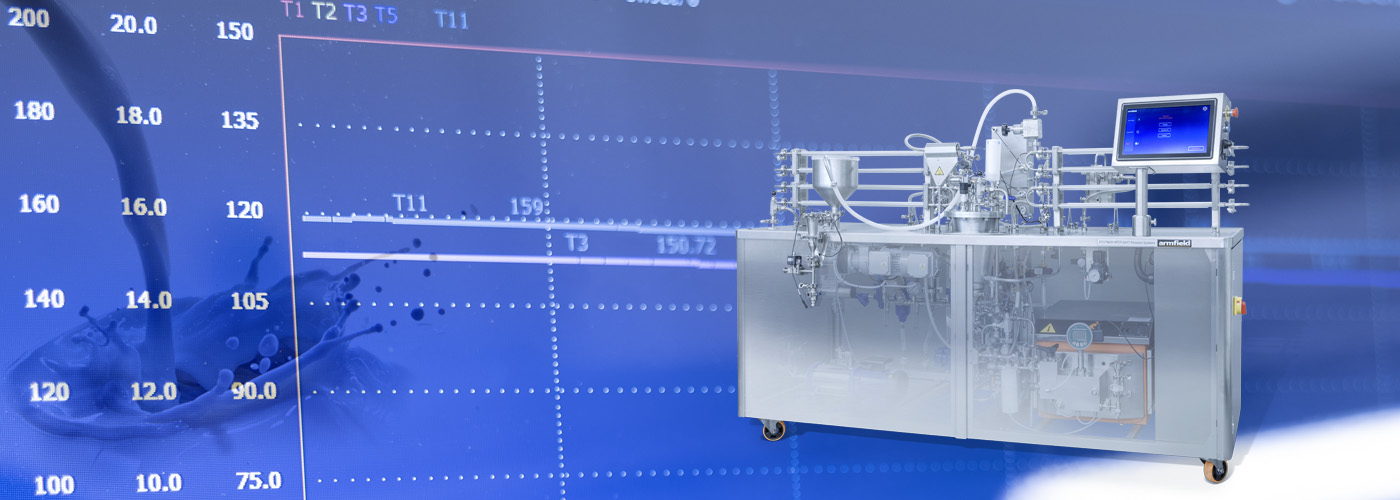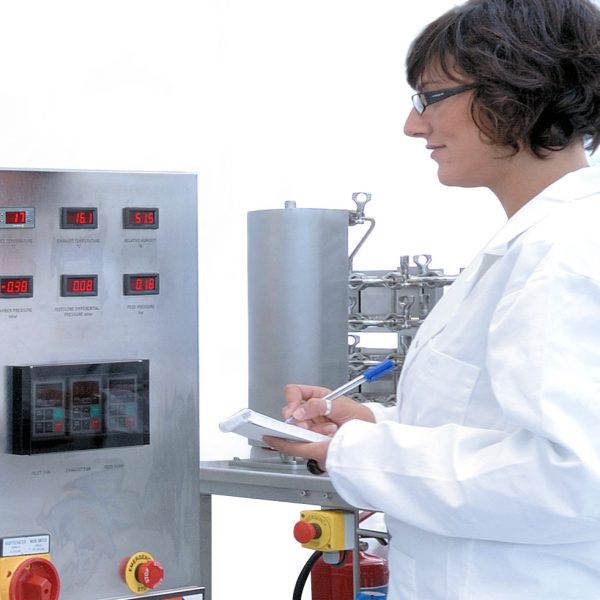Reducing Energy Consumption in Food Manufacturing

Reducing energy consumption in food manufacturing is becoming an urgent priority for businesses across the globe. Not only does energy usage directly impact production costs, but it also contributes significantly to environmental concerns such as greenhouse gas emissions and climate change. For companies looking to balance operational efficiency with sustainability, addressing energy consumption is essential.
At Armfield, we provide advanced solutions tailored for food manufacturers, offering pilot plant equipment and other food technology equipment that can significantly reduce energy consumption while maintaining high production standards. Our equipment is designed to improve energy efficiency, reduce waste, and contribute to a more sustainable future.
Energy Consumption in the Food Manufacturing Industry
Food manufacturing is one of the most energy-intensive industries globally, with refrigeration, heating, and processing accounting for the majority of energy usage. Studies show that energy costs make up about 15% of total operational expenses for many food manufacturers. As energy prices continue to soar, the pressure is on for companies to adopt energy-saving practices to remain competitive and meet regulatory requirements.
Armfield understands these challenges and provides cutting-edge pilot plants that enable manufacturers to test processes on a smaller scale before beginning full production, significantly optimising energy usage. Our food technology equipment helps businesses achieve energy savings through innovative design, including advanced heat exchangers and energy-efficient motors that reduce energy wastage.
How Food Technology Equipment Can Reduce Energy Consumption
Food manufacturers can reduce energy consumption by integrating energy-efficient equipment into their production lines. Equipment optimisation plays a key role in reducing operational costs and improving energy performance. Armfield’s pilot plant technology allows companies to assess production processes in a controlled environment, identifying areas for improvement before scaling up to full production. This means manufacturers can refine their energy use, cutting down on waste and inefficiency.
Energy-efficient equipment from Armfield can also support businesses in achieving their sustainability goals. Our solutions include energy-efficient lighting, advanced refrigeration systems, and innovative heat exchangers that recover waste heat and reuse it in the production process. These technologies enable food manufacturers to reduce their carbon footprint and save significantly on energy costs.
Benefits of Implementing Energy-Saving Practices
The benefits of reducing energy consumption in food manufacturing go far beyond cost savings. By investing in energy-saving measures, companies can reduce their carbon emissions, lower operational costs, and improve overall energy performance. Furthermore, implementing such practices contributes to the industry’s broader sustainability goals, enhancing brand reputation and meeting consumer demand for environmentally friendly products.
At Armfield, we have seen firsthand the transformative impact of our pilot plants on energy efficiency in the food industry. For example, our Pasteurisation and UHT systems (FT74XA, FT174XA and FT94X) are able to collect the temperature data enabling the user to analyse the energy usage for processing with different parameters. By being able to run small batches, the user can refine the process parameters to create the same tastes by with lower energy consumption and apply these changes to production.
For example, one of our clients, a major dairy producer, implemented our energy-efficient processing technology and saw a 25% reduction in their overall energy consumption within the first year of use. This not only reduced their operational costs but also helped them meet their sustainability targets.
Overcoming Challenges to Energy Efficiency
Although the benefits of reducing energy consumption are clear, many food manufacturers face challenges when implementing energy-saving technologies. Initial investment costs, resistance to change, and the complexity of integrating new systems can deter companies from adopting these measures.
However, these challenges can be overcome with the right approach. For instance, manufacturers can start by conducting an energy audit to identify areas where improvements can be made. At Armfield, we offer comprehensive support to help food manufacturers implement our energy-efficient pilot plant and equipment solutions, ensuring a smooth transition and quick return on investment. The data collected from our systems can be analysed to find the optimum
Furthermore, involving employees in the energy-saving process is crucial. By educating staff on the importance of energy efficiency and encouraging their participation in energy-saving practices, companies can foster a culture of sustainability within their operations.
How Food Companies Can Support Energy Reduction Efforts
Businesses also play a vital role in promoting energy efficiency within the food manufacturing industry. By supporting brands that prioritise sustainability and reduce their environmental impact, consumers can drive demand for more responsible manufacturing practices. Many companies are now making public commitments to reducing their carbon footprint, and consumers can make informed purchasing decisions based on these sustainability efforts.
At Armfield, we believe that collaboration between manufacturers, consumers, and government bodies is essential to achieving significant reductions in energy consumption across the food industry. By working together, we can create a more sustainable future for food production.
FAQs on Reducing Energy Consumption in Food Manufacturing
1. How can equipment be optimised to reduce energy consumption in the food processing industry?
Equipment can be optimised by upgrading to energy-efficient technology, such as Armfield’s pilot plants. These allow for precise control and testing of processes to identify areas of energy waste and improve overall energy performance before scaling to full production.
2. What steps can energy-intensive businesses take to cut down on their carbon footprint?
Energy-intensive businesses can conduct an energy audit to identify inefficiencies, invest in renewable energy sources, and upgrade to energy-efficient equipment like the solutions provided by Armfield. Implementing these measures can reduce carbon emissions and improve operational efficiency.
3. Why is it important for companies in the food and beverage industry to prioritise reducing their energy usage?
Reducing energy usage lowers operational costs, improves profitability, and helps companies comply with environmental regulations. Additionally, consumers are increasingly favouring brands that adopt sustainable practices, making energy efficiency a key competitive advantage.
Takeaways
Reducing energy consumption in food manufacturing is crucial for both economic and environmental reasons. By adopting energy-efficient practices, food manufacturers can not only cut costs but also reduce their carbon footprint and contribute to a more sustainable future.
At Armfield, we are proud to offer solutions that support these goals. Our range of pilot plants and food technology equipment helps companies optimise their energy usage, streamline production processes, and meet the growing demand for sustainable practices. With our expertise and cutting-edge technology, we are committed to helping food manufacturers achieve significant energy savings.
Does your food production business need to reduce your energy consumption? Contact us to learn more about how Armfield’s food technology equipment can help your business achieve its energy-saving goals.






































One thought on “Reducing Energy Consumption in Food Manufacturing”
Comments are closed.